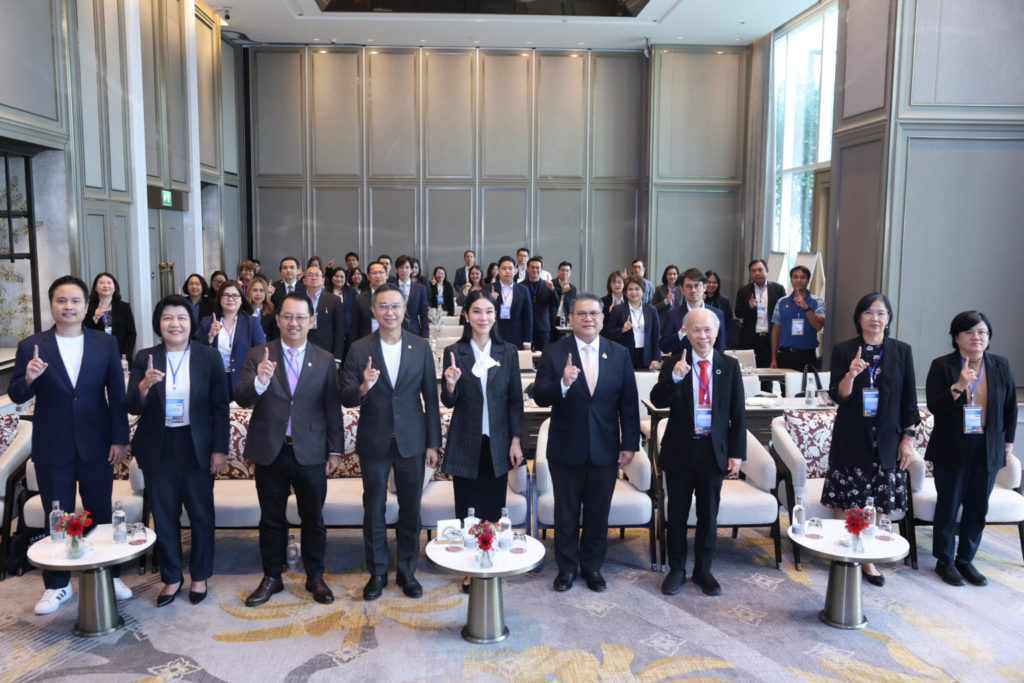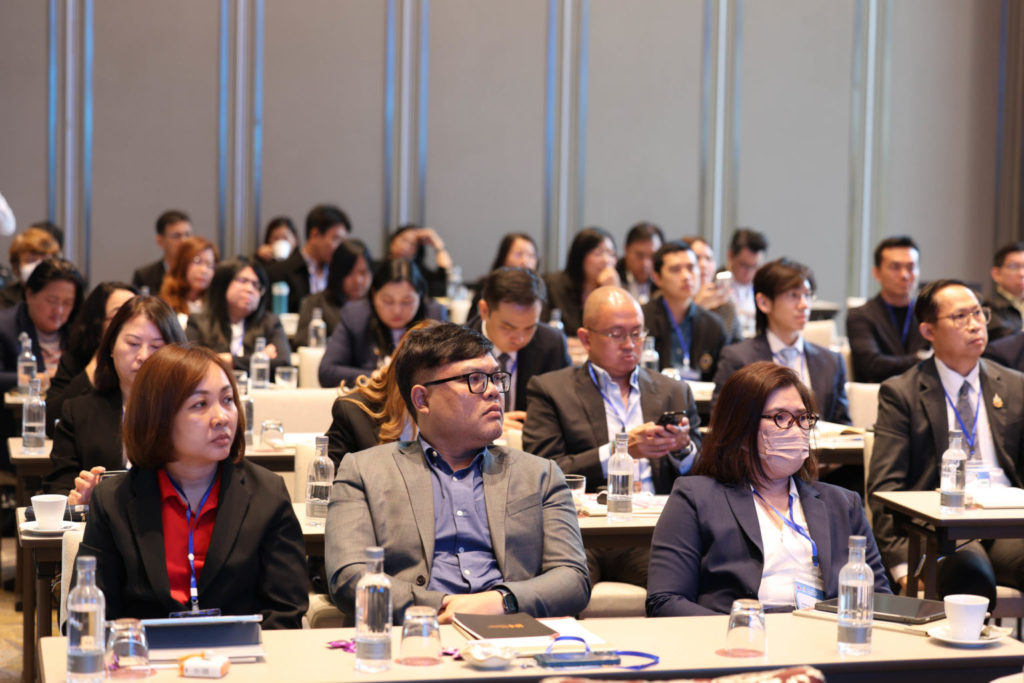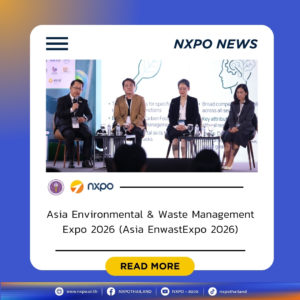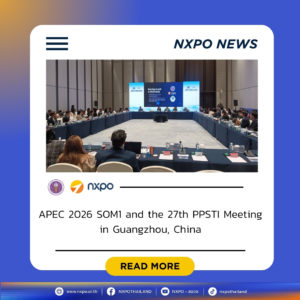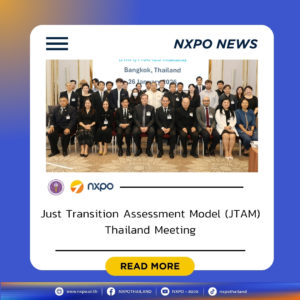On 13 June 2025, NXPO hosted the opening ceremony of the Carbon Management Technology and Innovation Policy for Executives Course at Grande Centre Point Lumpini, Bangkok. The event was presided over by Ms. Suchada Zhang Thaensap, Secretary to the Minister of Higher Education, Science, Research and Innovation (MHESI).
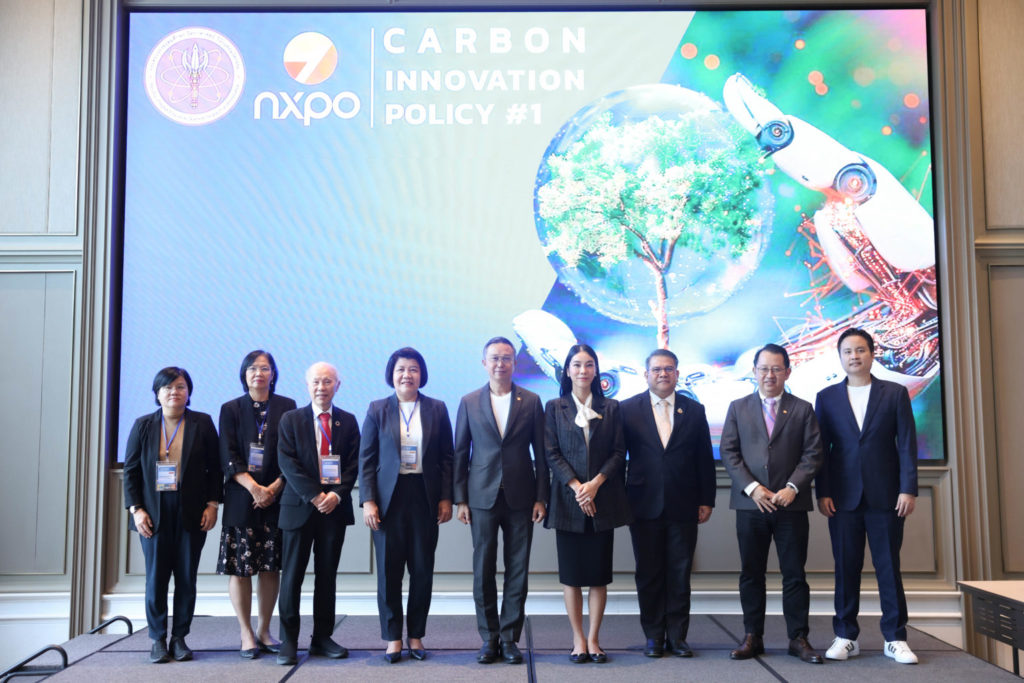
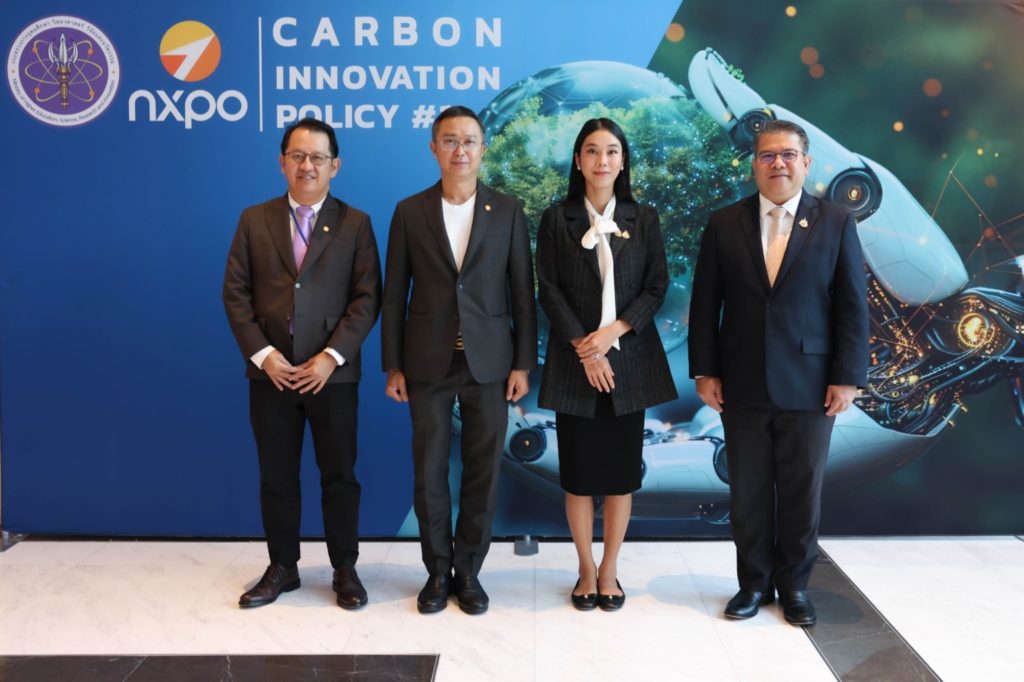
In her opening remarks, Ms. Suchada emphasized that this course was initiated by NXPO, an agency playing a pivotal role in formulating national policies on higher education, science, research, and innovation, while also serving as the Secretariat to the National Higher Education, Science, Research and Innovation Policy Council. Among the pressing global challenges addressed by Thailand’s policies, climate change and global warming have become increasingly critical, as reflected in both domestic and international reports.
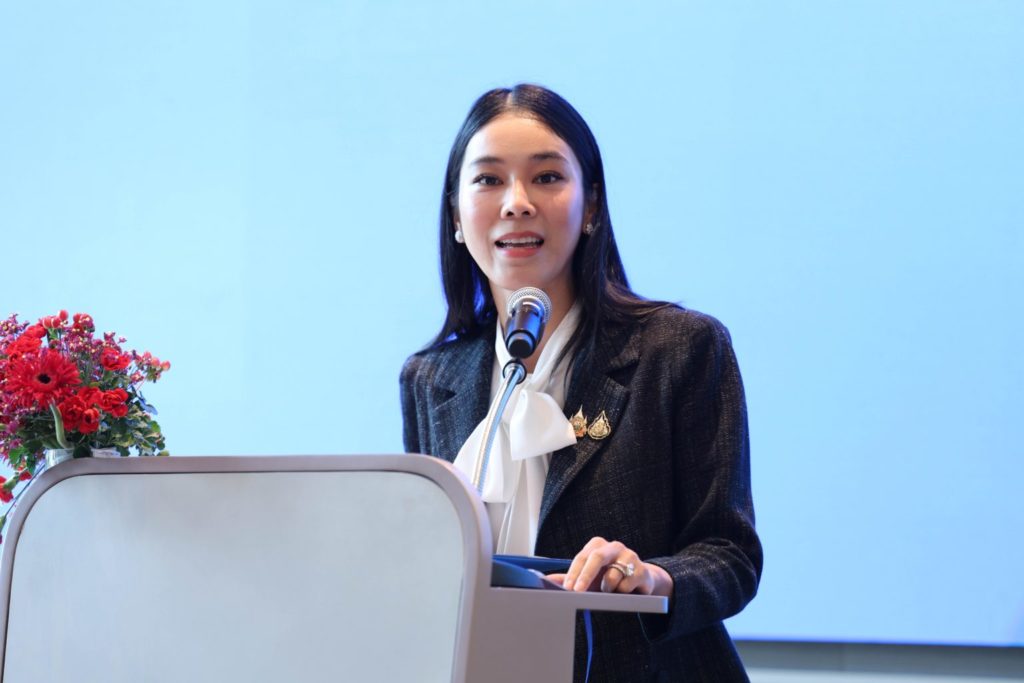
“As a signatory to the United Nations Framework Convention on Climate Change (UNFCCC) and the Paris Agreement, Thailand has pledged to achieve Carbon Neutrality by 2050 and Net-Zero Greenhouse Gas Emissions by 2065. Achieving these targets will require the active engagement of all sectors — government, business, and civil society,” Ms. Suchada noted.
She also underscored how the current global trade landscape, particularly with the rise of non-tariff measures, increasingly affects Thailand’s competitiveness. Carbon-related regulations such as carbon taxes, now adopted in several countries, especially within the European Union, have made carbon management within organizations and value chains not only a necessity but also a vital competitive advantage
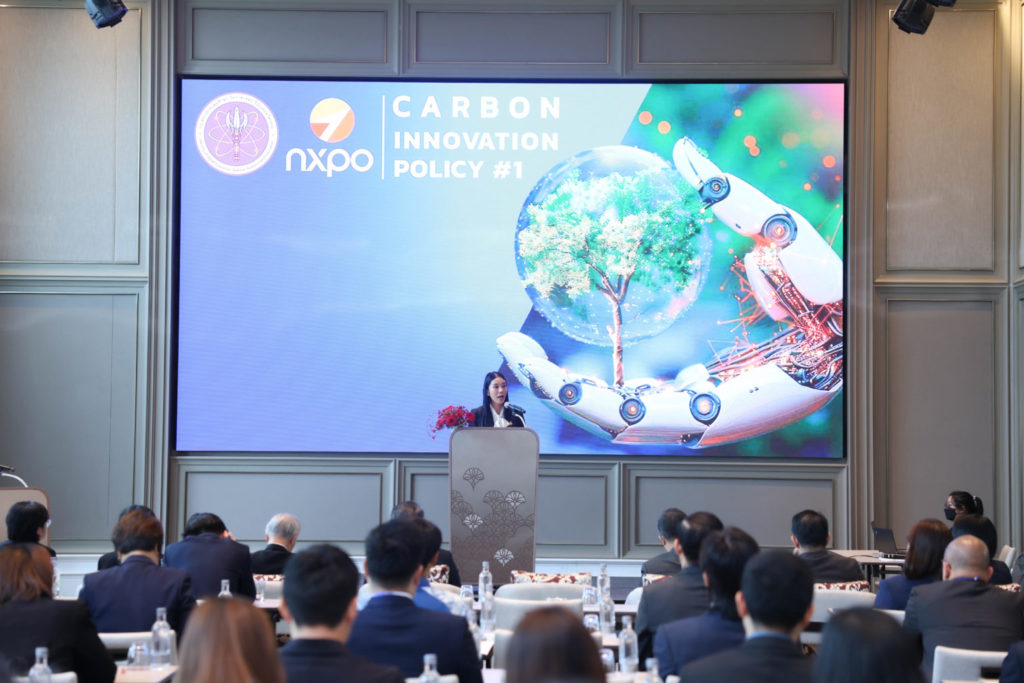
As Thailand’s National Designated Entity (NDE) for climate technology development and transfer under the UNFCCC framework, NXPO recognizes the importance of building leadership capacity in carbon management across the public and private sectors. This course was designed to equip participants with up-to-date knowledge of carbon management technologies, innovations, and policy-making processes, while also promoting sustainable development practices.
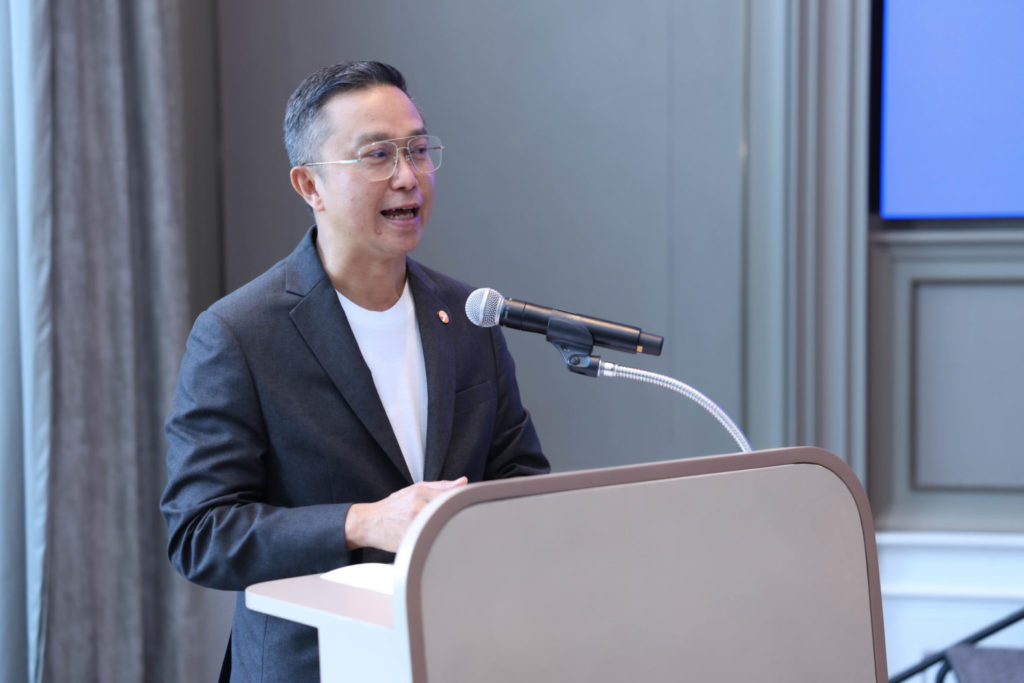
Dr. Surachai Sathitkunarat, President of NXPO, highlighted three main focus areas of the course: 1) Technology and Innovation — Emphasizing mitigation and adaptation technologies such as hydrogen energy, carbon capture, utilization, and storage (CCUS), and nuclear energy, 2) Sustainable Development — Exploring opportunities to leverage UNFCCC’s technology and financial mechanisms in support of Thailand’s sustainable development pathway, and 3) Policy Formulation — Providing participants with an understanding of the processes involved in developing and implementing effective public policy.
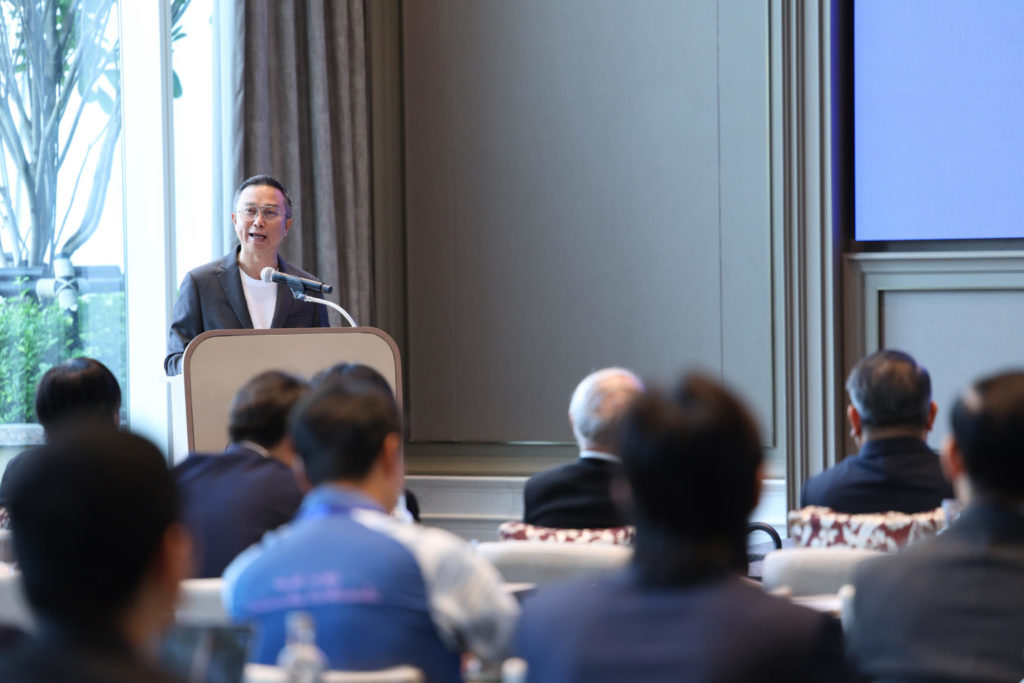
Assoc. Prof. Wongkot Wongsapai, Vice President of NXPO, delivered a presentation on the current landscape of climate-related research, offering an overview of Thailand’s research and innovation system. He outlined the 2023–2027 National Science, Technology, and Innovation (STI) Strategic Plan, which includes a dedicated focus on environmental challenges. He further noted the rapid global growth in climate technology investment — increasing tenfold between 2013 and 2018 to over USD 59.5 billion. In Europe alone, the market value of climate technology reached USD 47 billion in 2020, nearly doubling by 2021, reflecting expanding market opportunities and heightened global interest in net-zero initiatives.
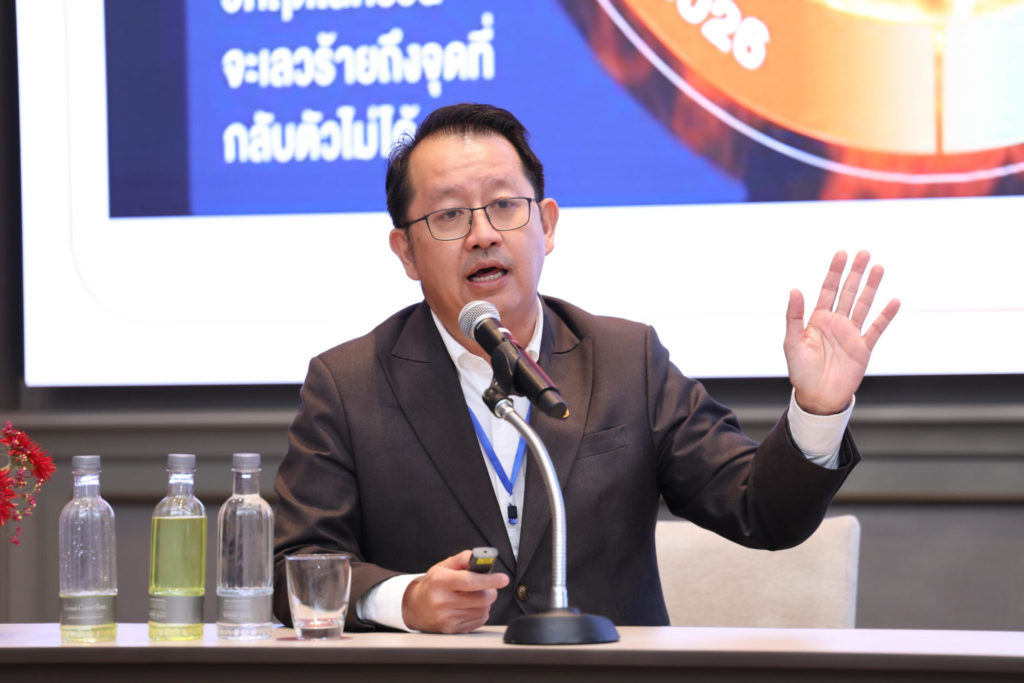
NXPO has set an ambitious target to help reduce greenhouse gas emissions by 10 million tons of CO₂ equivalent through various initiatives, including Saraburi Sandbox — a public-private partnership model involving 23 organizations across 7 ministries to pioneer a low-carbon city in Saraburi; Net Zero Campus — a national network of 172 universities committed to achieving net-zero greenhouse gas emissions; and the development of BCG assessment tools to support MSMEs in integrating sustainable business practices.
Additionally, in its role as Thailand’s NDE, NXPO serves as the national coordinating body for climate technology development and transfer and leads the preparation of Thailand’s second Technology Needs Assessment (TNA) report for submission to the United Nations (UN).
